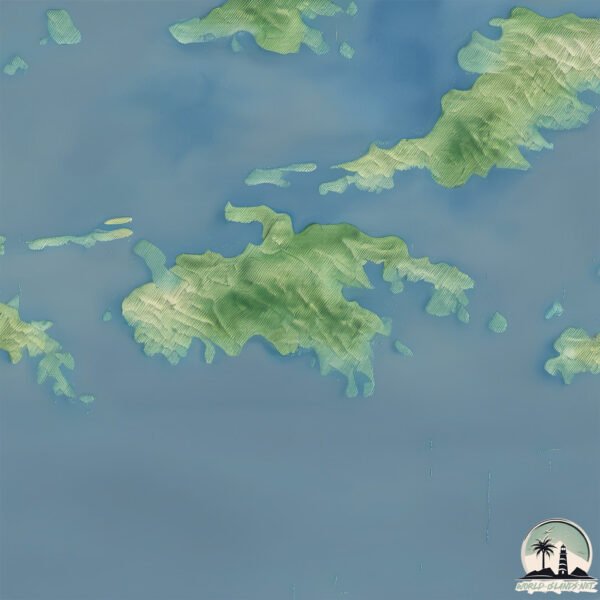St. John

Welcome to St. John, a Tropical island in the Caribbean Sea, part of the majestic Atlantic Ocean. This guide offers a comprehensive overview of what makes St. John unique – from its geography and climate to its population, infrastructure, and beyond. Dive into the details:
- Geography and Size: Explore the island’s size and location.
- Climate and Weather: Weather patterns and temperature.
- Topography and Nature: Uncover the natural wonders of the island.
- Infrastructure and Travelling: Insights on reaching, staying, and making the most of your visit.
- News and Headlines: Latest News.
Geography and size of St. John
Size: 50.3 km²
Coastline: 81.7 km
Ocean: Atlantic Ocean
Sea: Caribbean Sea
Continent: North America
St. John is a Medium Island spanning 50 km² with a coastline of 82 km.
Archipel: Virgin Islands – A group of Caribbean islands and islets, known for their beautiful beaches, coral reefs, and vibrant culture.
Tectonic Plate: Caribbean – Covering the Caribbean Sea and surrounding regions, this plate is bordered by the North American Plate and the South American Plate. Known for seismic activity, including earthquakes and volcanic eruptions, and features like the Puerto Rico Trench.
The geographic heart of the island is pinpointed at these coordinates:
Latitude: 18.3384151 / Longitude: -64.73708223
Climate and weather of St. John
Climate Zone: Tropical
Climate Details: Tropical Savanna, Wet
Temperature: Hot
Climate Characteristics: Defined by distinct wet and dry seasons with high temperatures year-round. Pronounced rainfall occurs during the wet season, while the dry season is marked by drought.
Topography and nature of St. John
Timezone: UTC-04:00
Timezone places: America/La_Paz
Max. Elevation: 305 m
Mean Elevation: 108 m
Vegetation: Evergreen Broadleaf Forest
Tree Coverage: 80%
The mean elevation is 108 m. The highest elevation on the island reaches approximately 305 meters above sea level. The island is characterized by Hills: Gently sloping landforms with rounded tops, having a maximum elevation between 200 and 500 meters. Hills contribute to a varied landscape on islands.
Dominating Vegetation: Evergreen Broadleaf Forest
Characterized by dense, lush canopies of broadleaf trees that retain their leaves year-round. These forests are typically found in tropical and subtropical regions and are known for their high biodiversity. St. John has a tree cover of 80 %.
Vegetation: 13 vegetation zones – Exceptionally Diverse Island
Islands with more than ten vegetation zones are among the most ecologically rich and varied in the world. These islands are akin to miniature continents, boasting an incredible array of ecosystems. The sheer range of habitats, from high peaks to deep valleys, rainforests to deserts, creates a mosaic of life that is unparalleled. They are crucial for conservation and ecological studies.
Infrastructure and Travelling to St. John
Does the island have a public airport? no.
There is no public and scheduled airport on St. John. The nearest airport is Charlotte Amalie Harbor Seaplane Base, located 16 km away.
Does the island have a major port? yes.
St. John is home to a major port. The following ports are situated on the island: .
The mean population of St. John is 70 per km². St. John is Gently Populated. The island belongs to United States of America.
Continuing your journey, Tortola is the next notable island, situated merely km away.
St John US Virgin Islands Travel Guide



United States of America is classified as Developed region: G7: Group of Seven – Major advanced economies, including Canada, France, Germany, Italy, Japan, the United Kingdom, and the United States. The level of income is High income: OECD.
News – Latest Updates and Headlines from St. John
Stay informed with the most recent news and important headlines from St. John. Here’s a roundup of the latest developments.
Please note: The data used here has been primarily extracted from satellite readings. Deviations from exact values may occur, particularly regarding the height of elevations and population density. Land area and coastline measurements refer to average values at mean high tide.
